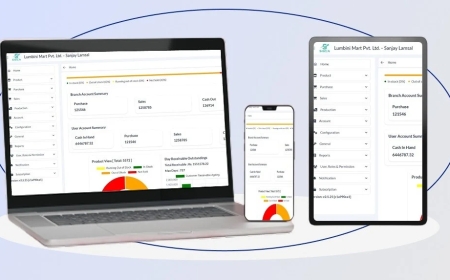How to Get Comped Rooms in Vegas
How to Get Comped Rooms in Vegas Las Vegas is more than just a city of neon lights and slot machines—it’s a destination where hospitality meets psychology, and where the right strategy can turn a modest gambling budget into a luxurious, all-expenses-paid getaway. At the heart of this experience lies the art of getting comped rooms: complimentary hotel stays awarded by casinos to players who demons
How to Get Comped Rooms in Vegas
Las Vegas is more than just a city of neon lights and slot machinesits a destination where hospitality meets psychology, and where the right strategy can turn a modest gambling budget into a luxurious, all-expenses-paid getaway. At the heart of this experience lies the art of getting comped rooms: complimentary hotel stays awarded by casinos to players who demonstrate loyalty, consistent play, and value. While many believe comped rooms are reserved for high rollers with six-figure bankrolls, the truth is far more accessible. With the right approach, even casual gamblers and savvy travelers can secure free or deeply discounted accommodations in some of the most iconic resorts on the Strip.
Understanding how comping works isnt just about knowing where to playits about mastering the relationship between your spending habits, casino loyalty programs, and the algorithms that determine your worth to a property. This guide demystifies the process, offering a comprehensive, step-by-step roadmap to earning complimentary rooms in Las Vegas. Whether youre planning your first trip or looking to upgrade your next visit from a budget motel to a five-star suite, this tutorial will equip you with the knowledge, tools, and mindset to succeed.
Step-by-Step Guide
Step 1: Understand What Comped Really Means
Comped is short for complimentary. In the context of Las Vegas casinos, it refers to free goods and servicesrooms, meals, show tickets, spa access, or even airfareprovided to guests in exchange for their play. These comps are not gifts; theyre calculated rewards based on a metric called theoretical loss.
Theoretical loss is an estimate of how much a player is expected to lose over time, based on the house edge of the games they play and the amount they wager. For example, if you play $100 per hand on blackjack with a 0.5% house edge and play for four hours at 60 hands per hour, your total action is $24,000. Your theoretical loss is $120 (0.5% of $24,000). The casino uses this numbernot your actual wins or lossesto determine your comp eligibility.
Crucially, you dont need to lose money to get comped. You just need to play enough to generate sufficient theoretical value. Many players win money and still receive comps because the casinos system rewards action, not losses.
Step 2: Join a Casino Loyalty Program
Before you even step foot on the casino floor, sign up for the players club at every major resort you plan to visit. This includes Caesars Entertainment (Caesars Rewards), MGM Resorts (MGM Rewards), Wynn/Encore (Wynn Rewards), and others like Boyd Gaming (B Connected) or Red Rock Resorts (Platinum Rewards).
Signing up is free and typically takes less than five minutes. Youll need a valid ID and possibly an email address. Once enrolled, youll receive a physical card or be able to use a mobile app to track your play. Always insert your card into the slot machine or give it to the dealer before you start playing. If you forget, you usually cannot retroactively earn points for that session.
Pro tip: Join programs for multiple brands. A single visit to Las Vegas might involve staying at a Caesars property, dining at an MGM restaurant, and catching a show at a Wynn venue. Each loyalty program operates independently, so maximizing your enrollment increases your comp potential.
Step 3: Play Strategically to Maximize Theoretical Value
Not all games are created equal when it comes to comp generation. The key is to focus on games with lower house edges but higher average bet sizes, as these yield the highest theoretical loss per hour.
Heres a breakdown of common games and their typical house edges:
- Blackjack (with basic strategy): 0.5% 1%
- Baccarat (Banker bet): 1.06%
- Craps (Pass Line with 2x odds): ~0.6%
- Video Poker (9/6 Jacks or Better): ~0.5%
- Slots: 5% 15% (varies widely)
- Roulette (American): 5.26%
While slots generate the most revenue for casinos, theyre the least efficient for earning comps because of their high house edge. A $100 wager on a 10% edge slot machine generates $10 in theoretical loss. The same $100 on blackjack generates only $0.50$1. But heres the catch: you can play blackjack at $25$50 per hand, while slot players might only bet $1$5 per spin. A blackjack player wagering $100/hour for four hours generates $400 in theoretical loss. A slot player betting $1 per spin at 300 spins/hour generates $150 in theoretical loss at a 10% edge.
Bottom line: Play table games with optimal strategy. Focus on blackjack, baccarat, and craps. Avoid high-edge games like keno, wheel of fortune, and most video slots unless youre playing for entertainment rather than comps.
Step 4: Increase Your Play Time and Bet Size
Comp value is directly proportional to your total action and time spent playing. If you play for one hour at $25/hand, youll generate far less theoretical loss than if you play for five hours at $50/hand.
Heres a simple formula to estimate your comp potential:
Theoretical Loss = Average Bet Hands Per Hour Hours Played House Edge
Lets say you play blackjack at $50 per hand, 60 hands per hour, for 4 hours, with a 0.7% house edge:
50 60 4 0.007 = $84 theoretical loss
Most casinos award $1 in comp value for every $5$10 in theoretical loss, depending on the property and your tier status. So $84 in theoretical loss could translate to $8$17 in compsenough for a free meal or a discounted room upgrade.
To earn a full complimentary room (valued at $150$300/night), you typically need $500$1,000 in theoretical loss. That means:
- Playing $100/hand for 1020 hours
- Or $50/hand for 2040 hours
Plan your visit accordingly. If youre staying three nights, aim to play at least 1015 hours total over your trip. Spread it outdont try to play 10 hours in one day. Casinos reward consistency.
Step 5: Talk to the Host or Pit Boss
Once youve been playing for an hour or more, introduce yourself to the pit boss or host. Say something like: Hi, Ive been playing here for a few hours and just joined the rewards program. Im planning to stay a few nightswhat kind of comps might I be eligible for?
Hosts are trained to identify players who show potential. They dont have unlimited authority, but they can often override automated systems and offer comps based on your play, attitude, and future intent. Be polite, honest, and non-confrontational. Dont demand a free roomask whats possible.
Pro tip: Mention your loyalty tier. If youre a Gold or Platinum member at another property, say so. Casinos compete for high-value players and may match or exceed offers to keep you coming back.
Step 6: Ask for Comps Before You Check In
Dont wait until youre at the front desk to ask for a comp. By then, the room may already be assigned, and the front desk staff may not have the authority to override your reservation.
Call the resorts players club desk or email your assigned host 2448 hours before arrival. Say: Ive been playing at your property for the past few visits and plan to stay this weekend. Based on my play history, Id appreciate any complimentary room upgrades or offers you can extend.
Many resorts have automated systems that generate comp offers based on your play history. If youve played enough, you may already have an offer waiting in your online account. Log in to your loyalty portal before your trip and check for complimentary stay or room upgrade promotions.
Step 7: Use Your Comps Wisely
Once you receive a comped room, dont assume its free. Many comps come with strings attached:
- Minimum play requirements (you must play a certain number of hours during your stay)
- Blackout dates (you cant use it on holidays or major events)
- Non-transferable (only the cardholder can use it)
- Must be used within 3090 days
Always read the fine print. If your comp includes a $100 food credit, use it at a restaurant youd have visited anyway. Dont waste it on overpriced snacks. If you get a show ticket, choose a performance you genuinely want to see.
Also, be aware that comped rooms are often in standard or lower-tier rooms. If you want an upgrade, ask politely at check-in. Sometimes, if the resort is underbooked, theyll offer a suite for free as a goodwill gesture.
Step 8: Leverage Multi-Property Play
Las Vegas is home to dozens of casino properties, many of which are part of larger corporate networks. Caesars owns properties like Caesars Palace, Harrahs, The LINQ, and Paris Las Vegas. MGM owns Mandalay Bay, MGM Grand, The Mirage, and New York-New York.
Play across multiple properties within the same network to accelerate your comp accumulation. For example:
- Play blackjack at Caesars Palace on Day 1
- Play slots at Harrahs on Day 2
- Dine at Planet Hollywood (also Caesars-owned) on Day 3
All of these activities count toward your Caesars Rewards total. The more you play across the network, the faster youll reach higher tiersSilver, Gold, Platinum, and Diamondeach unlocking better comp benefits.
Same applies to MGM Rewards. Play at MGM Grand, then visit Aria, then take in a show at the Beacon. All play counts.
Pro tip: Use your comped room as a base and play at nearby properties. Its easier to get comps when youre a frequent visitor across multiple venues.
Step 9: Travel During Off-Peak Times
Comps are far easier to obtain during slow periods. Avoid major holidays (New Years Eve, Super Bowl weekend, Memorial Day), conventions (CES, Comic-Con), and summer months when tourist traffic is highest.
Instead, target:
- Mid-January to mid-February
- September to early November
- Weekdays (SundayThursday)
During these times, casinos are more eager to attract players. Theyre more likely to offer generous comps, including free rooms, to fill inventory. Youll also experience shorter lines, better service, and more attention from hosts.
One traveler reported earning a free 4-night stay at Caesars Palace by playing just 8 hours over a TuesdayFriday trip in late October. The same amount of play in July would have earned only a $25 food credit.
Step 10: Reinvest Comps to Earn More
Dont treat your first comp as an endpoint. Use it as a stepping stone. If you got a free room for playing $600 in theoretical loss, use that stay to play more. Youre already on propertyyou might as well maximize your value.
During your comped stay, continue playing. Even 23 hours per day can generate additional theoretical loss, which can lead to:
- Free meals
- Show tickets
- Future room comps
- Tier upgrades
Many players turn a single free night into a week-long vacation by reinvesting their comps. Its a snowball effect: free room ? more play ? more comps ? free room again.
Best Practices
Be Consistent, Not Sporadic
Casinos reward loyalty. A player who visits twice a year and plays 5 hours each time is less valuable than a player who visits monthly and plays 2 hours each visit. Consistency signals long-term value. If you live nearby or can plan annual trips, make them predictable. Casinos track your visit frequency and adjust comp offers accordingly.
Never Play Beyond Your Budget
Comps are a bonus, not a reason to gamble recklessly. Never chase losses or increase your bet size just to earn a free room. The goal is to enjoy the experience while minimizing your net cost. If youre spending $500 to earn a $200 room, youre losing money.
Set a daily gambling budget before you arrive. Stick to it. Use your comp as a reward for playing within your meansnot an excuse to overspend.
Always Use Your Players Card
This cannot be overstated. Even if youre only playing $20 per hand, if you forget your card, you earn nothing. Many players think, Im just here for fun, and skip the cardonly to miss out on a $100 food credit or a free night they didnt even know they qualified for.
Keep your card in your wallet. Set a phone reminder. If youre traveling with a group, assign one person to manage the cards.
Dont Be Entitled
Comps are a privilege, not a right. Hosts and pit bosses respond to politeness, humility, and appreciation. Never yell, demand, or threaten to leave if you dont get what you want. A friendly thank you goes further than a thousand complaints.
Track Your Play
Use your loyalty app or website to monitor your theoretical loss, points earned, and available comps. Some players keep a simple spreadsheet: Date, Property, Game, Bet Size, Hours Played, Theoretical Loss, Comps Received.
This helps you identify patterns. For example, you might discover that you earn 3x more comps playing blackjack at Caesars Palace than slots at The Venetian. That insight lets you optimize future trips.
Combine Comps with Travel Rewards
Use credit cards that earn hotel points (Marriott Bonvoy, Hilton Honors, World of Hyatt) or airline miles. Even if youre getting a free room, you can still earn points on incidental spending like dining, spa services, or retail purchases.
Some premium cards offer automatic elite status with hotel chains, which can unlock complimentary breakfast, late checkout, or room upgradeseven if youre not a high roller.
Stay Informed About Promotions
Casinos run seasonal promotions: Play 3 hours, get a free night, Double points on Fridays, or Earn a $50 dining credit for every $100 in play.
Subscribe to your loyalty programs email list. Follow their social media accounts. Check the promotions page on their website weekly. These offers can dramatically accelerate your comp earnings.
Tools and Resources
Loyalty Program Portals
- Caesars Rewards: caesars.com/caesars-rewards
- MGM Rewards: mgmresorts.com/mgm-rewards
- Wynn Rewards: wynn.com/wynn-rewards
- B Connected (Boyd Gaming): boydgaming.com/b-connected
These portals allow you to view your theoretical loss, redeem comps, check your tier status, and receive personalized offers.
Mobile Apps
Download the official apps for each loyalty program. They offer push notifications for new comps, real-time point tracking, and mobile check-in. Some even let you request comps directly through the app.
Third-Party Tracking Tools
While casinos dont provide detailed theoretical loss breakdowns, third-party tools can help you estimate your value:
- Blackjack Apprenticeship Comp Calculator: A free online tool that estimates comp value based on game, bet size, and duration.
- Wizard of Odds House Edge Tables: Accurate house edge data for all major casino games.
- Reddit Communities: r/vegas and r/Blackjack offer real-world advice and comp stories from experienced players.
Travel and Booking Platforms
Use sites like Google Hotels, Kayak, or Hopper to compare comped room values. If a comped room is valued at $250/night, but you can book the same room for $180, youre getting a solid deal. If the comped room is worth $400 but youd pay $200, youre getting exceptional value.
Also, use TripAdvisor and Yelp to read reviews of specific rooms and amenities. Some standard rooms are outdated, while others are recently renovated. Knowing this helps you negotiate upgrades.
Booking Directly vs. Third Parties
Always book your room directly through the casinos website or by calling their reservations desk if youre seeking comps. Booking through Expedia, Booking.com, or Priceline typically excludes you from loyalty benefits and comp eligibility.
Even if youre paying for the room, booking direct ensures your play is tracked and youre eligible for future comps.
Real Examples
Example 1: The $200 Traveler Who Got a $600 Free Stay
John, a 42-year-old accountant from Ohio, visited Las Vegas for the first time in January. He had a $500 budget and planned to play blackjack for 6 hours total.
He signed up for Caesars Rewards, played $50/hand at Caesars Palace for 3 hours (180 hands), then $25/hand at The LINQ for another 3 hours (180 hands). His theoretical loss: $157.50.
He called the Caesars host desk two days before check-in and asked about comp offers. The host reviewed his play and offered him a free 2-night stay in a standard room at The LINQ, plus $50 in dining credit.
John used the $50 credit for dinner and turned his $500 trip into a $1,100 value experience. He returned six months later and earned a free suite.
Example 2: The Slot Player Who Got Lucky
Sarah, a retiree from Arizona, played $1 slots at MGM Grand for 4 hours a day over 5 days. She didnt use her card for the first two days. On day three, she remembered and inserted her card. She played $100 per hour for 20 hours total.
Her theoretical loss: $1,000 (10% house edge on $10,000 played). She received a free 3-night stay at the MGM Grand, two show tickets, and $100 in food credit.
She later learned that if shed used her card from day one, she might have received a complimentary suite upgrade and a $200 spa credit. The lesson? Always use your cardeven if youre playing slots.
Example 3: The High Roller Who Got a Private Jet
While not typical, some players with massive theoretical loss generate extraordinary comps. One known case involved a player who wagered $2 million over three months at a single property. He received:
- A 7-night suite stay
- Private jet transportation
- A $10,000 dining allowance
- A personal host for the duration of his stay
While most of us wont reach this level, it illustrates the power of consistent, high-volume play. Even small players can climb the ladder over time.
Example 4: The Couple Who Turned a $100 Trip into $1,200 in Value
Mark and Lisa visited Vegas for a weekend. They each played $20/hand at blackjack for 2 hours per day over 4 days. Combined theoretical loss: $112.
They asked for a comp at check-in. The host offered a $75 food credit and a $50 spa credit. They used the credits and received a complimentary room upgrade from a standard to a premium view room.
They left with a $300 room (normally $150) for $0, plus $125 in creditsnet value of $425 on a $100 trip. Theyve returned every year since.
FAQs
Do I need to lose money to get a comped room?
No. Casinos reward theoretical loss, not actual losses. If you win money but play enough to generate high theoretical value, youll still earn comps.
Can I get a comped room if I dont gamble?
Its extremely rare. Comps are tied to gaming activity. Some resorts offer non-gaming loyalty programs for dining or shopping, but these rarely result in free rooms. Focus on playing to earn.
How much do I need to play to get a free room?
Typically, $500$1,000 in theoretical loss. This translates to:
- 1020 hours of blackjack at $50/hand
- 2040 hours at $25/hand
- 50100 hours of low-stakes slots
Do comps expire?
Yes. Most room comps expire within 3090 days. Food and show credits may expire sooner. Always check expiration dates in your loyalty portal.
Can I transfer my comps to someone else?
Generally, no. Comps are tied to the players card and ID. However, some resorts allow you to gift dining or show credits to companions.
Is it better to play slots or table games for comps?
Table games are far more efficient. You generate more theoretical loss per hour with lower risk. Slots require significantly more time and money for the same comp value.
Do I need to be a high roller to get comped rooms?
No. Many players earn free rooms with modest budgets. Consistency and strategy matter more than bankroll size.
Can I get a comped room if Im not staying at that casino?
Yes. You can earn comps at one property and redeem them at another within the same network. For example, play at Harrahs and get a comp for a stay at Caesars Palace.
What if I get denied a comp?
Politely ask why. Sometimes, its a system error. If you believe you qualify, ask to speak with a supervisor or call the players club directly. Persistence with respect often pays off.
Can I combine comps with discounts or coupons?
Usually not. Most comps are standalone benefits. However, you can often combine a free room with a credit card reward (e.g., free night certificate) or a travel deal.
Conclusion
Getting comped rooms in Las Vegas is not a secret handshake reserved for millionaires. Its a system grounded in mathematics, psychology, and customer retentionand its accessible to anyone willing to learn the rules and play smart.
By joining loyalty programs, playing strategically, tracking your theoretical loss, and communicating politely with casino staff, you can turn ordinary trips into extraordinary experiences. A free night in a luxury suite, a gourmet meal on the house, front-row seats to a headline showthese are not fantasies. Theyre achievable outcomes for the informed and disciplined traveler.
The key is patience. Dont expect a free room on your first visit. Build your value over time. Visit often, play consistently, and treat the casino as a partnernot a lottery. The more you engage with the system, the more it rewards you.
Las Vegas was built on the idea that everyone deserves a chance to win. With this guide, you now have the tools to turn that promise into realitywithout spending a fortune. So next time you pack your bags for Sin City, remember: youre not just going on vacation. Youre playing the game, the right way.

























